DIY LCD TV repair
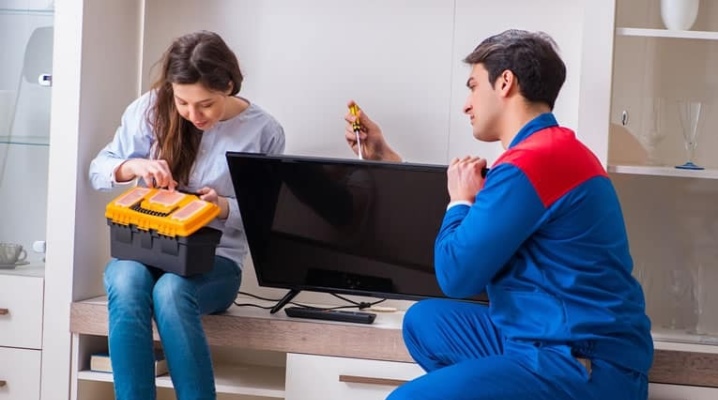
Televisions have long and firmly taken their place in the everyday life of every modern person, so a breakdown of a TV receiver can fundamentally ruin the mood of any of its owners, especially since new units are not cheap at all. That is why, in the event of a malfunction, each person has a question - whether it is necessary to go to a service center and where to find a good master, is it worth spending your time on repairs and, most importantly, money. Of course, these are important questions, but before turning to the services of paid specialists, try to determine the cause of the breakdown and, if possible, fix it - in some cases, repairing electrical equipment at home is possible.
Common malfunctions
In order to carry out an independent repair of TV receivers, it is necessary to determine the root cause of the breakdown. This will require:
- multimeter - this device is necessary to determine the voltage parameters in the control sections of the measurement, the ratings of capacitors and resistors, as well as the continuity of electrical circuits;
- amplifier - used to identify the area where the signal disappears;
- oscilloscope - required to represent signals at several points of the functional diagram of a TV device.
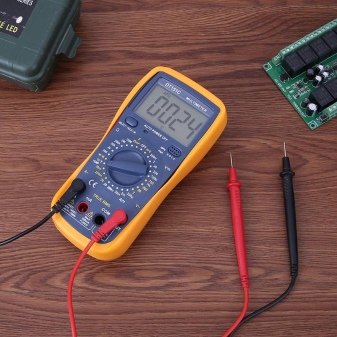
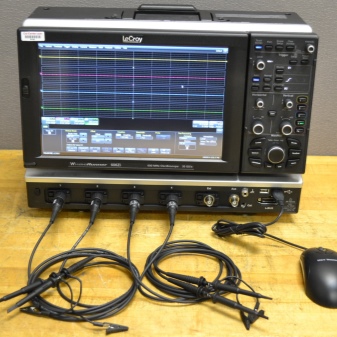
The most common causes of malfunctions:
- The receiver does not start - the reason is usually the failure of the power supply, as well as damage to the cable or breakdown of the power button.
- The screen does not light up or the video sequence looks blurry, barely noticeable - this directly indicates problems with the backlight LEDs, light bulbs or their power sources.
- The TV wheezes or there is no sound reproduction at all - in this case, most likely there are interruptions in the operation of the audio amplifier or strapping.
- The screen of the TV receiver is lit, but there is no image - this indicates an interruption in the operation of the tuner, as well as its circuits, or a breakdown of the video card.
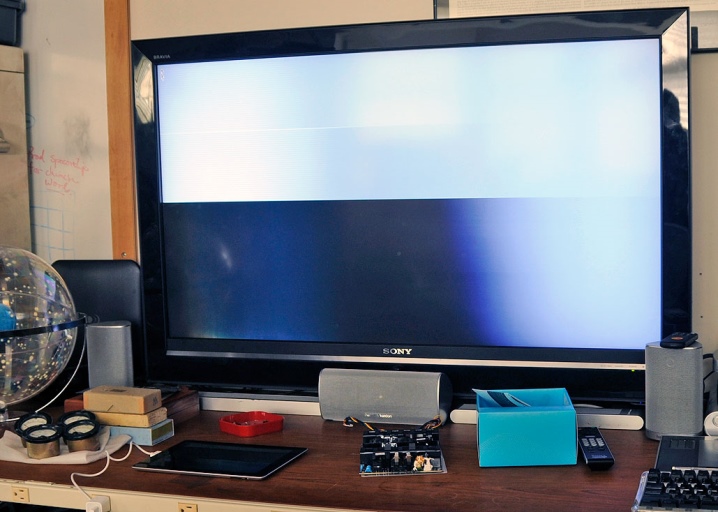
Another common reason for TV breakdown is mechanical damage to the screen... In this case, you can notice the problem with the naked eye - a broken monitor, cracks, a broken matrix, light and dark spots on the screen will indicate it.
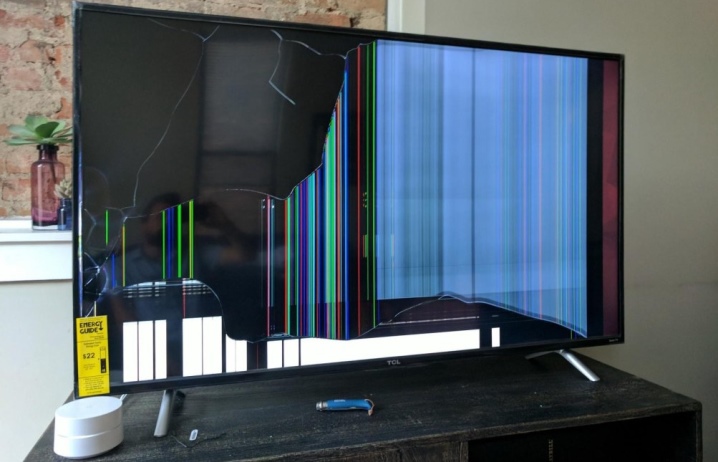
We draw your attention to the fact that if during an external examination of television equipment you notice a rupture of elements, swelling, carbon deposits or darkening on the board, do not rush to repair the damaged parts.
It is possible that the burned-out component is only a consequence of the short circuit, and its real reason is located in a completely different place.
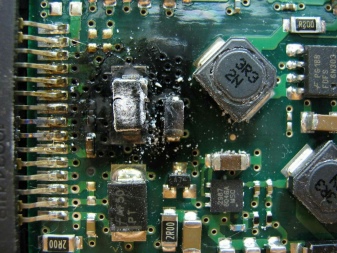
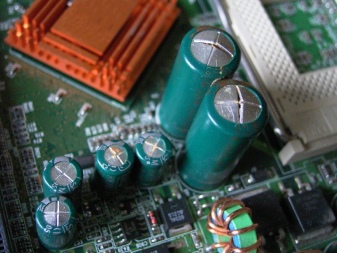
Is it possible to repair the screen
If the LCD TV is dropped or accidentally hit by a heavy object - the panel is broken. In both cases, the question arises: is it possible to fix the screen after an impact at home?
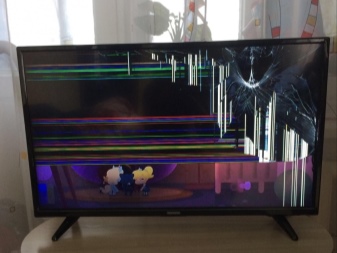
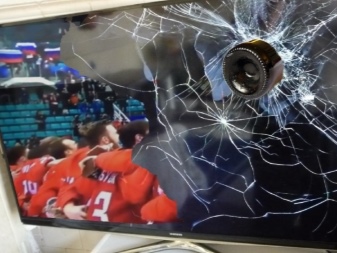
If you do not have the skills to work with electronic equipment, the answer will be no - you cannot do it yourself, all the necessary work must be entrusted to specialists by contacting a repair shop.
Keep in mind - the cost of such repairs usually costs a "tidy" amount, comparable to the price of a new receiver.
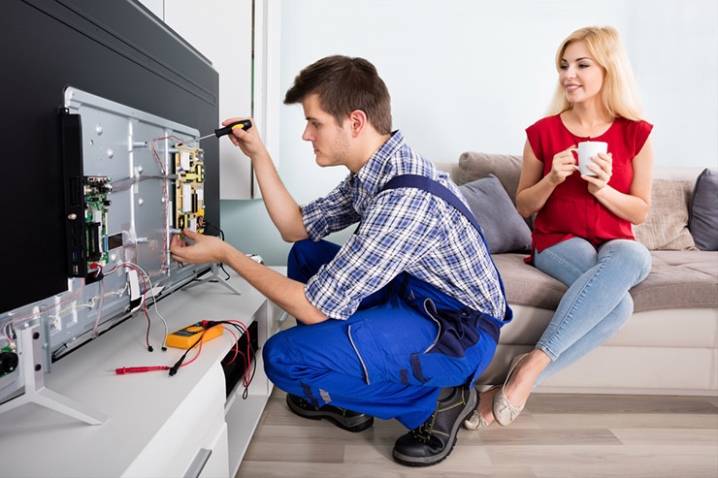
The situation is no better with the breakdown of the screen caused by damage to the matrix. In this case, you may notice a partial absence of a picture, light or dark spots, stripes.To eliminate all the unpleasant consequences associated with this problem, it needs to be changed. These works should also be performed only by qualified technicians, since any repair at home can aggravate the situation and lead to the permanent failure of your TV.
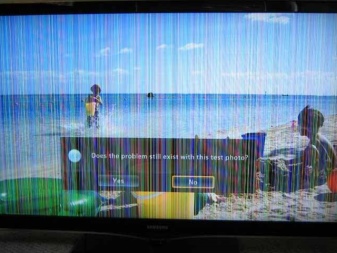
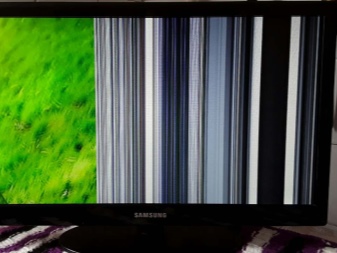
Elimination of other breakdowns
Does not turn on
If the TV receiver does not turn on, then most likely the reason for such a problem is in the power supply unit malfunction, activation button and wire defects.
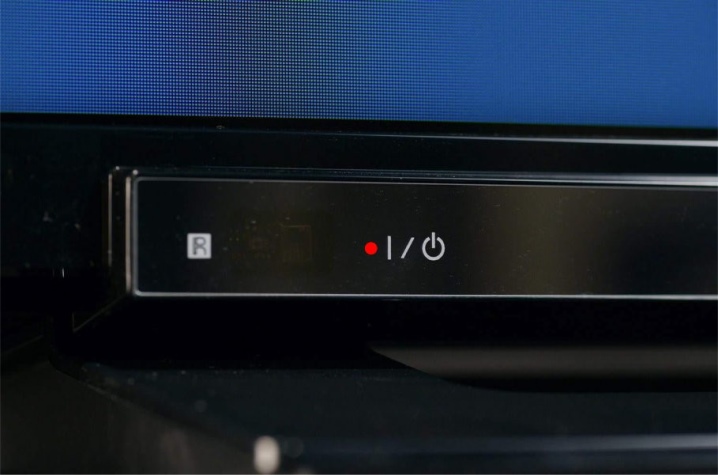
To determine the cause of the cable and button problem, you need to ring out the elements using the tester, and the malfunction should be determined not only in the on, but also in the off state.
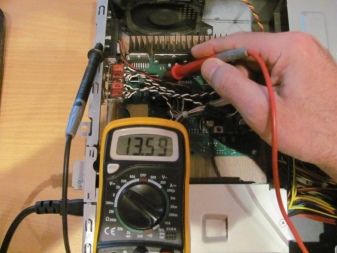
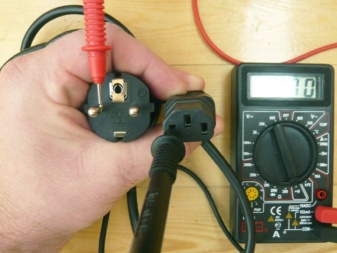
With the power supply, the situation is much more complicated. - if during a visual inspection you notice damaged parts, this does not mean that by replacing them, you will receive a properly working equipment. For example, capacitors may well swell from overvoltage, long-term use, or due to a secondary circuit, the source of which is contained in a completely different circuit.
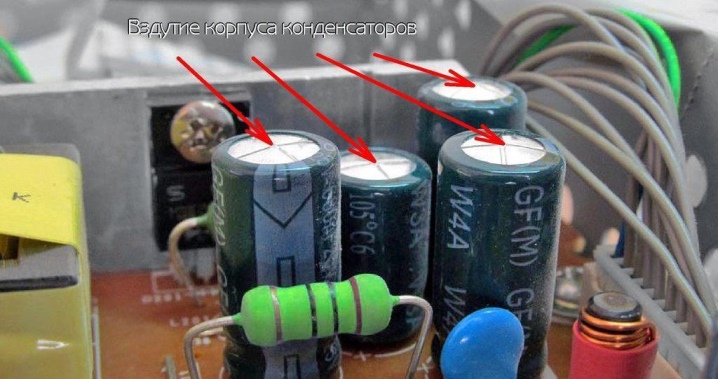
That is why it is necessary to ring all the power supply elements with a multimeter. This is done in the following sequence.
- If the air conditioner swells, the posistor cracked, any other visually detectable defect is noticeable, then the part should be carefully evaporated and cleaned of electrolytes and carbon deposits.
- The tester is checked starting with the fuse, as well as the posistor, then the diode bridge is called, then the transistors, resistors and finally the microcircuit. If during the diagnostics no interruptions were identified, you just need to replace the old working elements.
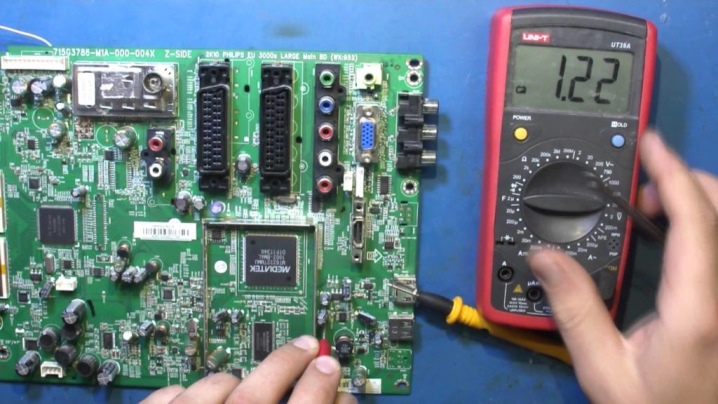
The screen does not light up
If there is sound, but the panel does not light up - this may indicate a problem with the lighting circuit. There may be two reasons for this:
- interruptions in the operation of lamps: LED or lamps;
- lack of power to the backlight elements.
If you have an LCD TV, then the backlighting is lamp-based, in all other models it is LED.
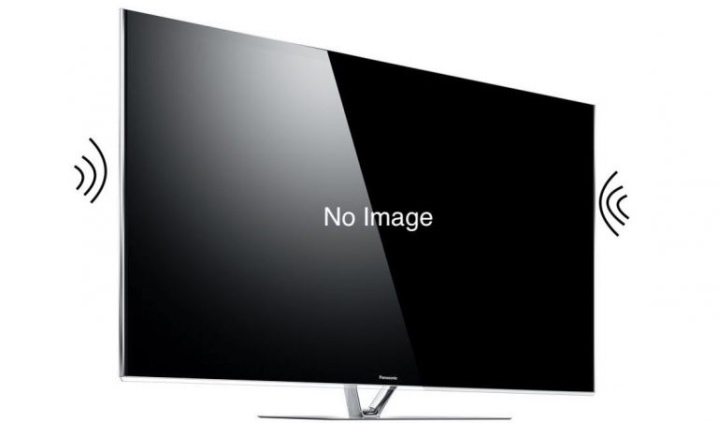
Typically, any LCD TV has 1 to 10 bulbs. They all burn out very rarely at once, most often the lamp itself is faulty. In this case, TVs are repaired as follows.:
- open the case;
- carefully remove all driver boards, as well as the power supply;
- disassemble the screen module, for this, remove both covers, if any, as well as the protective film;
- inspect the LED strip or light bulbs, if necessary, replace them;
- the rest of the target is checked visually, and then with a tester - this will make sure that there are no breaks in the diode tape.
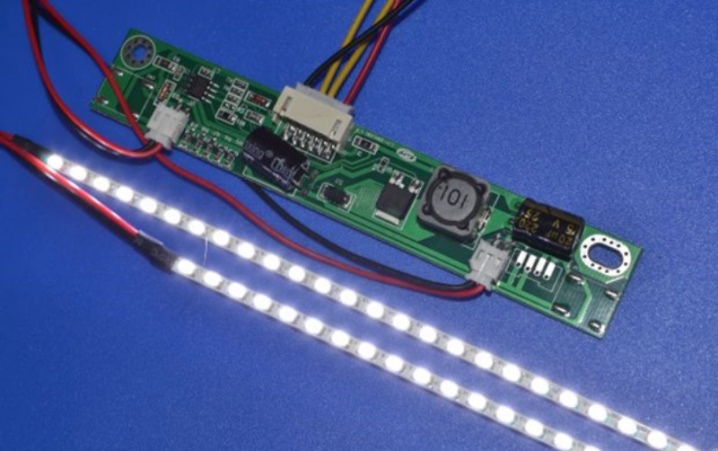
A more detailed overview of replacing broken lamps using the example of a Sharp LCD TV is presented in the following video:
If all the lamps do not light up at once, then with a high degree of probability the problem is reduced to the power supply of the backlight. As a rule, high-voltage converters are used in liquid crystal and plasma technology. Violation in their starting circuits can be easily determined with a multimeter. To do this, you need to measure the voltage on the knives in exact comparison with the working diagram. As soon as you find inconsistencies, you can replace the elements with serviceable ones.
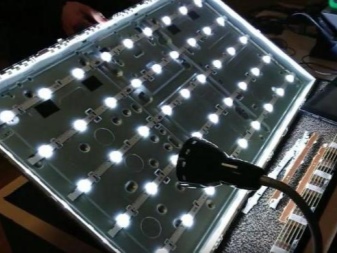
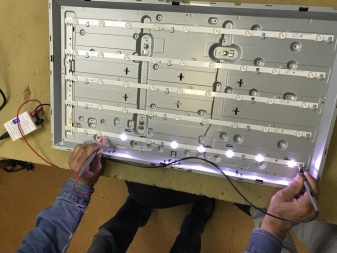
And here make sure the transformer is working will be much more difficult. To do this, you need to measure the voltage across all microelements of the converter. If the parameters are normal in each, then the transformer is to blame. You can rewind it if you want, but this is a very troublesome task. And the quality of such winding leaves much to be desired - sooner or later, the equipment fails again. The best option would be to buy a new one.
In LED backlight transformers, the potential difference is usually between 50 and 100 W. If it is not present on the connectors - you should check how many volts goes to the old transformer. To do this, you must first remove it. If the parameters are normal, the transformer should be replaced, and if not, then it is worth continuing to check the remaining parts of the converter.
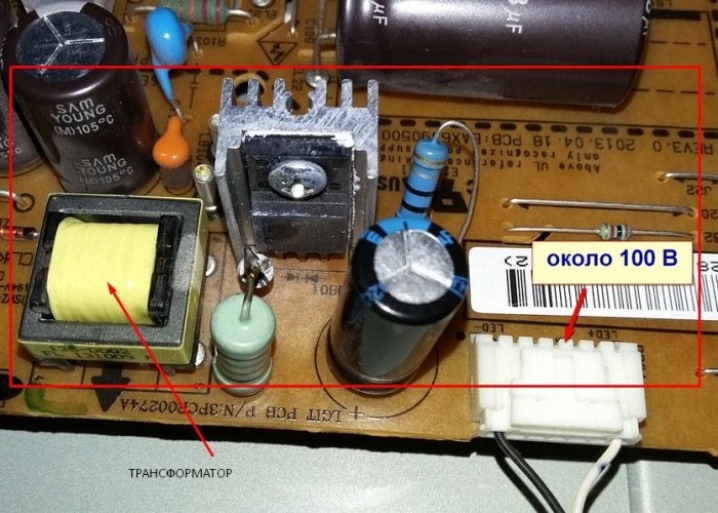
No sound or wheezing
Such a breakdown is usually associated with a breakdown of the sound path. Before eliminating it, you should ring all the supply, as well as the output voltage values on the legs of the sound amplifier microcircuit. This should be done by a tester, referring to the working diagrams. If the indicators are normal, then the cause of the violation lies in the capacitors.
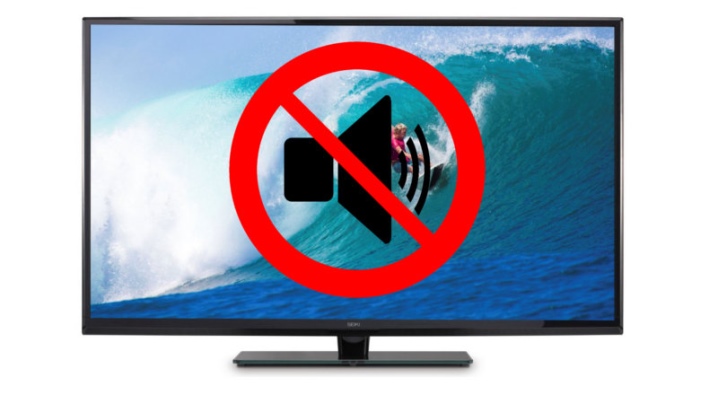
If there is no power at all or it is too low, then it is possible that the current does not come from the power supply unit. In this case, you should ring all the elements that go from the power supply unit to the sound device. Failed parts are exchanged for workers.
Checking the state of the microcircuit is simple - you need to remove it from the socket. If after that the voltage on the tester appears and its value is normal, then the microcircuit will have to be changed to a new one.
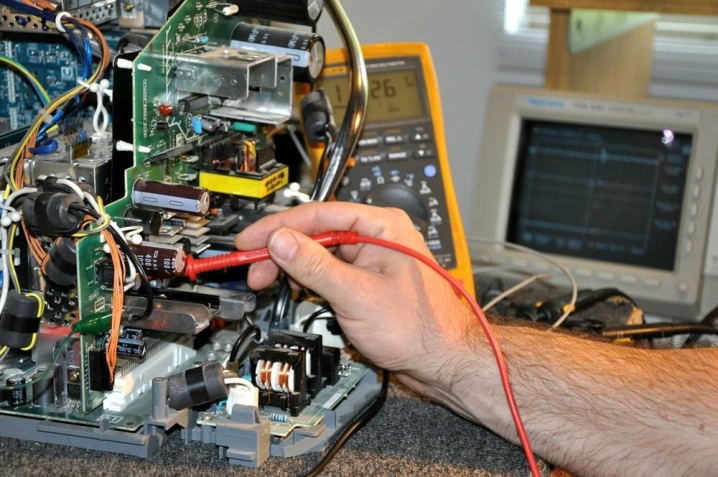
No picture
If the picture freezes, then such a breakdown occurs for several reasons:
- No signal from the receiving module to the input device of the video amplifier. To diagnose such a breakdown, you should connect any other video signal source, for example, a set-top box, laptop, PC or VCR, to the “Video” socket located on the TV case. If the image appears, then the cause of the equipment malfunction is the tuner or microcontroller, as well as their circuits.
- The microcontroller is checked quickly enough - it is responsible for the functionality of the buttons of all output audio and video signals. If by pressing a key you can enter the menu and it appears on the display - the microcontroller is not to blame. Then it is worth checking all the potentials on its legs with a multimeter. If they fully coincide with the values of the circuit, then you will have to replace the tuner.
- The cause of the breakdown may also be a malfunction of the video processor. If, after connecting to the tuner elements, the audio sequence does not appear again, you need to check the video processor, that is, the entire microcircuit as a whole. To do this, check the output and power supply circuits to ensure that their values correspond to the required operating potentials. If you find such a discrepancy, you can say with a 70% probability that the processor is broken.

Recommendations
Experienced craftsmen give the following recommendations:
- When checking the power supply, try disconnecting all secondary circuits, and instead, connect the most ordinary lamps at the desired voltage level.
- If you think that the electrolyte of the TV receiver has lost its capacity, then gently heat its inner contents with a soldering iron, as a result of manipulations, the capacity will be restored for a while. This method helps if there are interruptions in vertical scanning, so you can see how the screen opens after heating.
- If you encounter a malfunction of high-voltage elements, hear a slight hiss or see a crackle, then place the TV receiver in a dark place or turn off the light - this way you can see where the sparks are coming from.
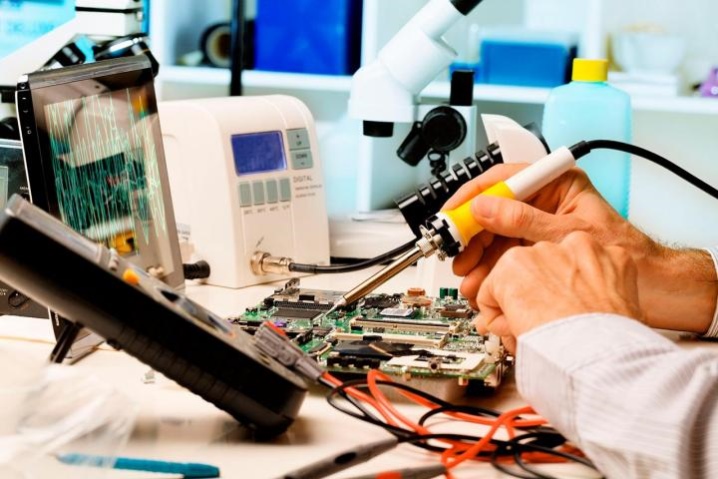
As you can see, it is possible to repair television equipment yourself at home. However, this does not apply to all types of malfunctions of TV receivers. In our review, we told how to diagnose the most common breakdowns, and also gave detailed instructions on how to repair individual faults.
To eliminate more significant problems, you should contact a specialized service center.
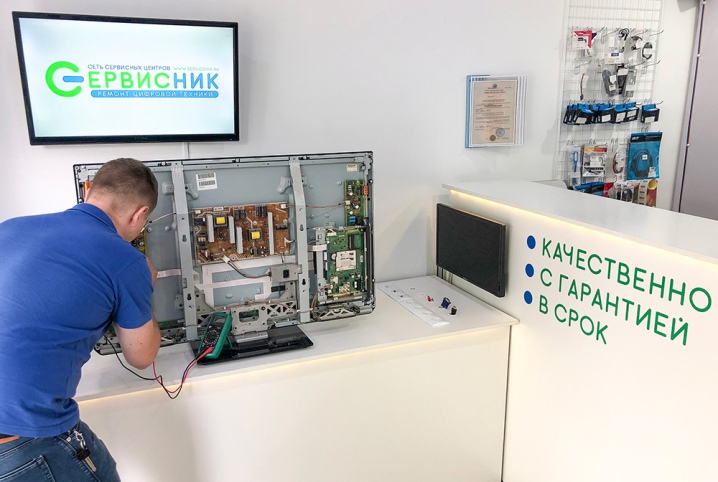
In the next video, you can get acquainted with a detailed analysis and repair of an LCD TV at home.













The comment was sent successfully.